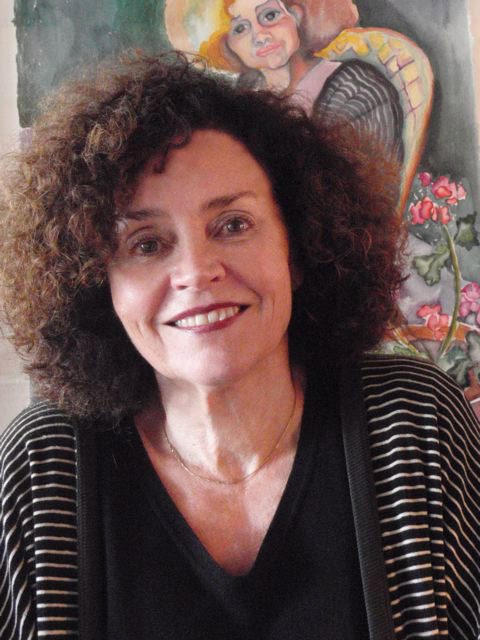“Darning” by Beverley Bie Brahic (poetry, ’06)
 An excerpt from the story “Darning” by Beverley Bie Brahic (poetry, ’06), published at Poetry Daily:
An excerpt from the story “Darning” by Beverley Bie Brahic (poetry, ’06), published at Poetry Daily:
Darning
Roaming the library stacks makes me uneasy. Too many books I haven’t read. The flesh is sad? Alas. But I’ve read all the books? Not even close. Getting my bearings in the third (literature) floor’s musty pulp-and-paper-smelling undergrowth, I file down a narrow path between stacks to tip a few more books from the shelf.
My husband’s sabbatical at a California university has stretched into years. I miss the street corner stink of piss, the damp zinc and glitter of life in Paris. I miss the newsstands. I miss the bookshops. The campus bookstore has been taken over by sportswear with the university logo; books relegated to the caves and eaves. In Paris, the flâneur is forever being lured into small shops still in business because French law restricts discounting and free shipping (no help, unfortunately, for Paris’s English bookshops, like the much-regretted Village Voice, which must still compete with the online trade).
But the campus dweller life allows me to indulge an old fantasy: plugging the holes in my education. Sure, this feels like one of those math problems in which the student is asked to calculate how long it will take to fill a bathtub that is simultaneously draining at a different rate. Still I persist. A card swipe gets me into the university’s Babelian library, its hushed reading rooms with rows of shiny new books (English spines one way, French the other) and the ferny canyon-like stacks. I can audit classes—heaven in my theology will be reading Dante’s Inferno / Calvino’s Cosmicomics in the dauntingly articulate company of students toting laptops on skateboards. I’ve screwed my courage to the sticking point for ‘Philosophy and Literature’, with readings from Aristotle to Lydia Davis’s radically short story (‘It has been so long since she used a metaphor!’): a course so rife with the stuff of thought that when I scrolled through the online catalogue recently and saw it was being offered again with what looked like a fresh slate of readings I messaged the teaching team—a Proust scholar and a historian of late modern philosophy—to beg permission to repeat. ‘The good news,’ my friend the philosopher shot back with characteristic Californian generosity, ‘is that you are most welcome … the bad news is that the syllabus will be exactly the same. Even the jokes.’ […continue reading here]



